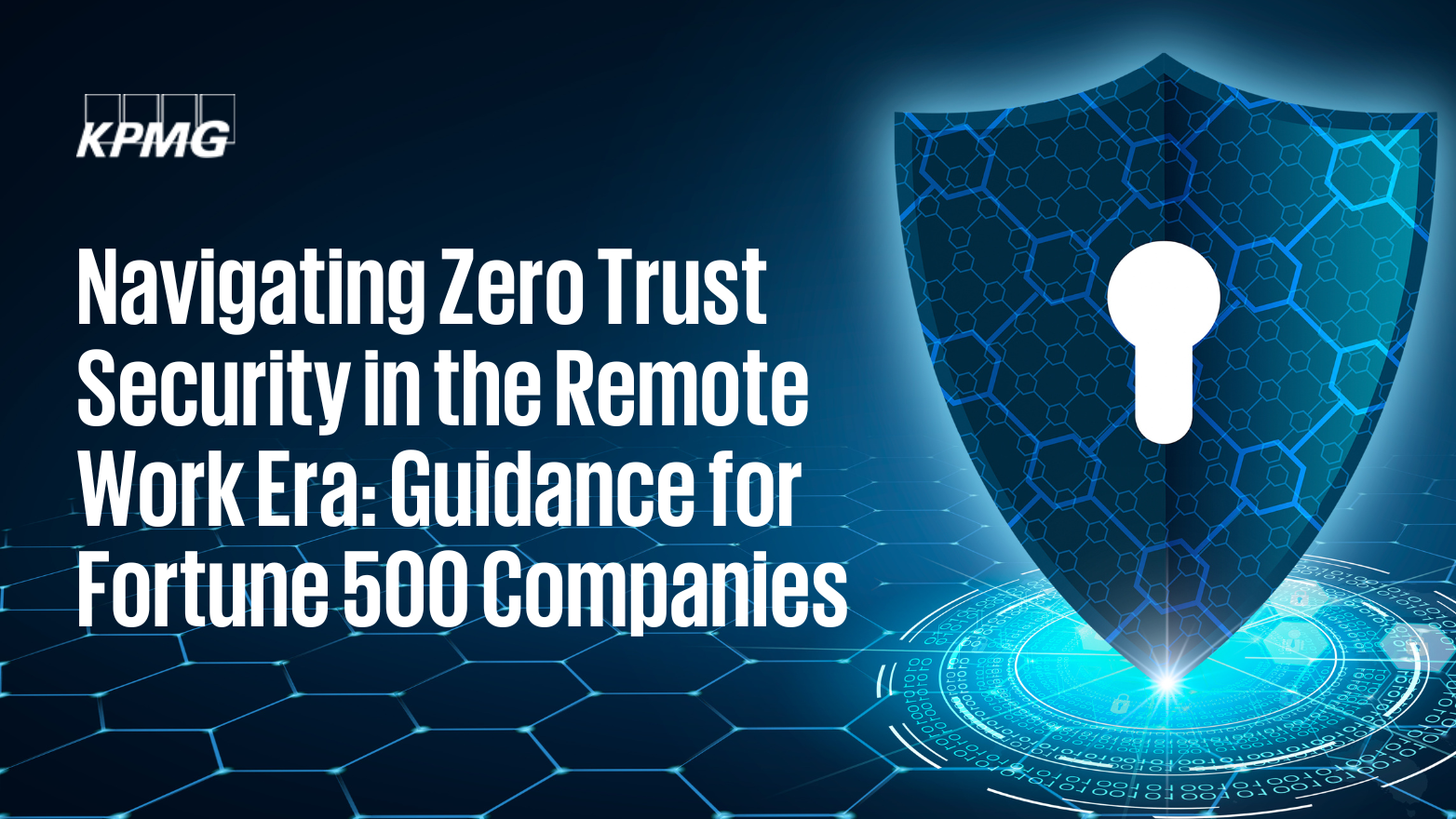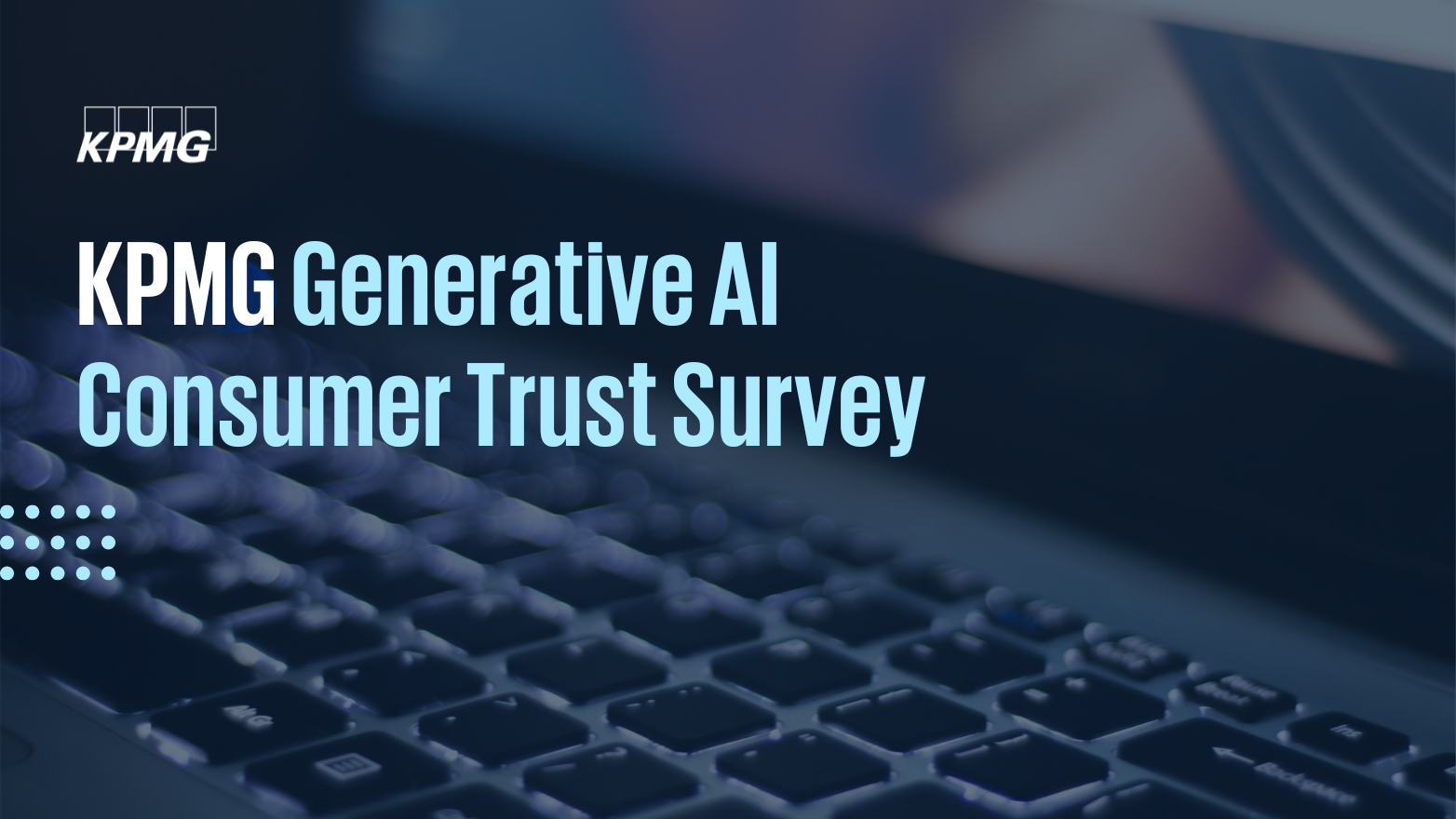A Data-Driven Culture Will Differentiate the Winners from the Losers: What Businesses Should Do to Stay Ahead
By Bob Parr, Advisory CDO
At KPMG, we recognize the significance of cultivating a data-driven corporate culture, particularly for Fortune 500 companies. But why is it so critical?
For one, it enables organizations to make informed decisions, improve productivity, enhance customer experiences, and confidently respond to challenges with a factual basis. By embracing a data-driven mindset, companies can comprehend the connection between their data assets and firm performance. As a result, organizations can better leverage their data, collaborate more effectively, and accurately predict market changes, leading to an improved return on investment.
In the age of GenAI, the care taken to manage an organization’s data estate has never been more critical. While the sophistication of automation continues to rise, the quality of AI-driven insights and recommendations still adheres to the ubiquitous “garbage in garbage out” principle. The quality of outputs is correlated to the quality of the data you feed the AI algorithms or LLM (Large Language Model).
While the benefits are significant, many organizations struggle to establish this core aspect of their culture. Based on our experience and that of our clients, there are several key predictors of success for those committed to making this cultural transition.
The role of leadership is an essential focal point. IDC reported that 90% of corporate strategies identify data as a critical enterprise asset, highlighting the need for strong leadership support in implementing a data-driven approach. Leaders must articulate the importance of data and highlight real-world examples of successful data-driven strategies. Moreover, they should be personally committed to data quality, bias mitigation, and seeking data-driven insights from their staff. Last, they must also be committed to investing in the upskilling of both themselves and their organization.
Invest in digital literacy and tools. Investing in digital literacy and tools is crucial as organizations strive to cultivate a data-driven culture. What was once a focus on just data literacy now encompasses the need for a broader skill set, including the knowledge and use of cloud, analytics, AI, and automation. This integrated approach enhances the value proposition of upskilling initiatives, focusing not only on data governance and quality but also on deriving meaningful insights and automation benefits from data.
To maximize the impact of digital literacy programs, organizations must take care to align the content with business value drivers and address the specific needs of different teams. This can be achieved by adopting a modular approach to learning, allowing teams to customize their training paths (based on common content modules) in order generate the most relevant and engaging learning experiences. In our own organization we have seen significant value through the addition of an active learning component, in our case, through pro-bono non-profit projects and hackathons where participants apply what they learn in a more hands-on way.
A key aspect of modern digital literacy curricula involves the integration of data ethics. Leading programs emphasize clear and actionable practices, moving beyond abstract discussions of bias and disparate impacts. Such programs underscore the importance of data provenance (where data originates), outlining potential population skews inherent in data sources and providing methodologies for analyzing and remediating biases.
While establishing these types of programs requires investment, we see clear correlations between those that invest in this type of upskilling and overall business performance. A recent KPMG cross-industry analysis highlighted the tangible benefits of investing in digital literacy, particularly when targeting leaders outside the traditional IT (Information Technology) function. In fact, upskilling non-IT leaders yields a net income impact roughly five times greater than the same upskilling for IT leaders. Increasing literacy by just 1% within the non-IT senior leadership group leads to an average 1.6% increase in net income. This growth can be attributed to the leaders' ability to apply their newly acquired knowledge to apply and action the insights, technological advancements, and productivity gains, resulting in higher profits per employee and a more efficient workforce.
Furthermore, we found that the benefits of investing in digital literacy extend beyond the acquisition of digital skills and knowledge. By upskilling employees, companies demonstrate a commitment to their workforce's success, fostering a sense of loyalty that enhances employee retention. This, in turn, reduces turnover costs and preserves valuable institutional knowledge.
Ultimately, investing in digital literacy and the tools that cater to the diverse needs of a data-driven organization empowers teams to fully leverage their data assets and propel business success. By prioritizing a comprehensive, modular, and practical approach to digital literacy training, organizations can make a major step to unlocking the potential of a data-driven culture.
Provide Seamless Access to Data Assets: All the best training and tools are of limited use if analysts and business resources do not have transparency to what data is available and a means of rapid deployment, Often referred to as Marketplaces, these allow for intelligent search for data and analytic assets, the ability to assess if the data is fit for purpose, its providence and restrictions on use. A shopping type experience allows for “drag and drop” deployment of these assets. Ease of access promotes experimentation – a key ingredient for producing high quality insights.
Promote and Monitor Adoption: While the value proposition is positive, it requires continual focus to promote the availability, emphasize benefits including the applicability to a given area.
Timely measurement of learning adoption needs to include course enrollment, completion and any certification or “badging” for having completed a set of related courses. At KPMG, one of our key divisions applied these approaches and generated over 75,000 course completions in less than one year. The average completion rate was 5 courses per professional with many completing over 10. While this will enable you to measure and manage the upskilling program, key business impacts also needs to be tracked and monitored. For instance, at KPMG we actively track when our data and analytic assets are used with clients to generate insights. This demonstrates that our people were routinely able to apply what they learned to generate an improved business outcome for our clients.
Data-driven cultures have tangible benefits for businesses, as seen in the ever-growing list of successful organizations employing this approach. For instance, a quick service restaurant applied a data-driven strategy to optimize its store locations, resulting in accelerated growth and improved revenues. Meanwhile a leading pizza chain outperformed giants like Google and Facebook in terms of stock value appreciation from 2010 to 2017 by focusing on data-driven strategies for customer engagement and marketing.
By focusing on these areas, companies can successfully foster a data-driven corporate culture, impacting decision-making processes, employee engagement and business value. We believe that in a world dominated by data-centric businesses, adopting a data-driven mindset is paramount for staying competitive and ensuring long-term success.
Explore more

Navigating Zero Trust Security in the Remote Work Era: Guidance for Fortune 500 Companies
Zero Trust operates on the assumption that no user or device is inherently trustworthy, necessitating verification for every attempt to access a network or application.

KPMG to Advance and Scale Generative AI Technologies for its Clients and Talent
KPMG announces a new initiative to deploy a series of generative artificial intelligence (AI) investments and alliances to empower its workforce, further advance cutting-edge client solutions and reimagine how the 125-year-old firm operates.

2024 KPMG Generative AI Consumer Trust Survey
Consumers are optimistic about the benefits of GenAI as technology becomes more pervasive, according to the KPMG survey of 1,000 college-educated and informed U.S. consumers.

